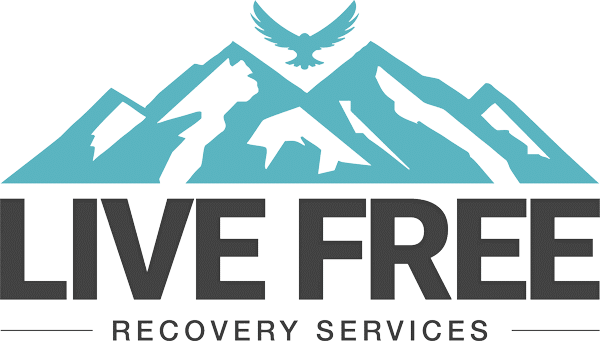At Live Free Recovery, we use a client-focused approach when treating alcohol addiction. Through this client-focused approach, we consider the individuality of each patient. Ultimately, our goal is to provide truly transformational programs and support to help clients succeed in life.
Alcohol abuse and addiction are widespread health problems in the United States. Alcohol abuse is related to more than 88,000 deaths in the United States every year, according to the Centers for Disease Control and Prevention.
Part of the reason that many people continue to abuse alcohol is that a certain amount of drinking is considered socially acceptable. Thus, it can be difficult to determine where social drinking ends and alcohol abuse begins. If you are drinking enough that it interferes with your daily life, harms your relationship, or makes you unable to function at work, it may be time to get help.
Table of Contents
- Only 20% of individuals with alcohol use disorder ever seek help.
- What is Alcohol Rehab?
- How Alcohol Problems Develop
- What is Alcohol Use Disorder?
- Alcohol Use Disorder vs. Alcohol Dependency
- Alcohol Withdrawal Symptoms
- Alcohol Detox
- Medications Used in Medical Detox for Alcohol Abuse
- FDA-Approved Medications for Alcohol Dependence and Alcohol Use Disorder
- Alcohol Abuse and Alcoholism Treatment
- Types of Inpatient Alcohol Addiction Treatment
- Types of Outpatient Alcohol Addiction Treatment
- Types of Rehab Programs
- Inpatient Residential Care
- Partial Hospitalization Programs (PHPs)
- Outpatient Programs (OPs)
- Intensive Outpatient Programs (IOPs)
Only 20% of individuals with alcohol use disorder ever seek help.
What is Alcohol Rehab?
Alcohol rehab is available at Live Free Recovery for individuals who wish to get treatment for alcoholism. We have treatment options ranging from residential treatment to outpatient treatment programs to long-term aftercare and sober living.
Substance abuse treatment typically starts with detox, and then individuals will move through the continuum of care. Alcohol treatment centers will determine the type of treatment needed to be based on the level of alcohol misuse, if there are any mental health conditions present, and if there was a previous history of getting treatment for alcohol use disorder(AUD). Treatment professionals will then develop an alcoholism treatment plan to target what’s necessary for recovery.
How Alcohol Problems Develop
One of the most abused substances is alcohol. This is partly due to the fact that drinking alcohol is legal once a person hits a certain age. Thus, alcohol is easily accessible. Unfortunately, what many people don’t realize is that alcohol is a highly addictive substance. Thus, if someone continuously abuses it, he or she is susceptible to developing an alcohol dependency and/or addiction. Because of how addictive alcohol is, learning how to beat alcoholism is difficult. It usually requires medical detoxification and a substance abuse program at a healthcare treatment center.
What is Alcohol Use Disorder?
When a person suffers from substance use disorder, he or she has experienced changes in his or her brain chemistry due to excessive alcohol consumption. Alcohol use disorder is also characterized by not being able to stop drinking even after one attempts to.
The fact that people who suffer from alcohol use disorder can’t stop abusing alcohol even when they try to show just how difficult it is to learn how to beat alcoholism. That’s why alcoholism treatment programs are so vital.

Alcohol Use Disorder vs. Alcohol Dependency
Prior to suffering from alcohol use disorder, people must already have become dependent on alcohol. Alcohol dependency means that a person experiences withdrawals anytime he or she minimizes or discontinues drinking alcohol.
Because the withdrawal symptoms that people who suffer from alcohol dependency experience are so severe, many people choose to continue to drink more and more alcohol to avoid feeling them. As a result, many people who develop alcohol use disorder later develop full-fledged alcoholism.
Because alcohol dependency is a stepping stone on the way to alcohol use disorder, all individuals who suffer from alcohol use disorder also suffer from alcohol dependency, even though all individuals who suffer from alcohol dependency don’t necessarily suffer from alcohol use disorder yet.
Alcohol Withdrawal Symptoms
There are numerous symptoms that are typical for people who are suffering from alcohol withdrawal to experience. The severity of the symptoms that people experience when they suffer from alcohol dependency only increases over time, hence the reason why many people start to drink more alcohol to avoid feeling more intense withdrawals. Unfortunately, such behavior only causes many people who suffer from alcohol dependency to later develop alcohol use disorder.
Common withdrawal symptoms include:
- Headaches
- Anxiety
- Insomnia
- Fatigue
- Mood changes
- Fever
- Confusion
- Vomiting
- Gastrointestinal disturbances
- Excessive sweating
- Heart palpitations
- Increased heart rate
- Increased blood pressure
- Rapid breathing
- Hallucinations
- Tremors
- Seizures
- Hyperthermia
Alcohol Detox
To overcome alcohol use disorder, individuals must first detox from alcohol. To do this, individuals must taper their drinking until they are no longer consuming alcohol and there is no longer any alcohol in their bodily systems.
Tapering one’s drinking means slowly minimizing the amount of alcohol that one consumes until he or she is no longer consuming any alcohol at all. By tapering one’s drinking, a person who suffers from alcohol use disorder will start to experience alcohol withdrawals. Thus, during alcohol detox, a person must withstand experiencing alcohol withdrawal symptoms without drinking more alcohol.
There are prescription withdrawal medications that people can take to help them manage their symptoms during alcohol detox. To receive such prescription medications, people must attend medical detox. This is because only medical detox programs provide doctors to monitor the entire treatment process to make sure people are comfortable and recovering adequately.
Medications Used in Medical Detox for Alcohol Abuse
Prescription medications that doctors prescribe to individuals to treat their alcohol withdrawals are all FDA-approved. These FDA-approved medications are typically either benzodiazepines, barbiturates, or some other kinds of anticonvulsant seizure medications.
FDA-approved benzodiazepines that doctors prescribe to individuals to help them manage their symptoms include:
- Chlordiazepoxide (Ex. Librium)
- Clorazepate (Ex. Tranxene)
- Diazepam (Ex. Valium)
- Oxazepam (Ex. Serax)
Examples of anticonvulsant medications that doctors sometimes prescribe to people suffering from seizures during medical detox due to withdrawal include:
- Carbamazepine ( Ex. Tegretol)
- Gabapentin (Ex. Neurontin)
- Oxcarbazepine (Ex. Trileptal)
- Valproic Acid (Ex. Depakene)
FDA-Approved Medications for Alcohol Dependence and Alcohol Use Disorder
There are other FDA-approved medications that doctors often prescribe to individuals to not only help them manage their symptoms but also to help them get through substance abuse treatment. The following FDA-approved medications are the ones that people typically hear about when it comes to treating alcohol abuse and alcoholism.
- Disulfiram ( Antabuse)
- Naltrexone ( Vivitrol and Revia)
- Acamprosate (Campral)
Alcohol Abuse and Alcoholism Treatment
Once individuals get through alcohol detox, they should seek treatment that is targeted at alcohol use disorder. Programs are offered at treatment centers such as Live Free Recovery. People can choose whether to enroll in either inpatient or outpatient rehab. Typically, it’s best to follow treatment professionals’ recommendations and enter into the treatment plan that will lead to the best chances of recovery.
The goal of any program is to address underlying issues surrounding alcohol problems and encourage the individual to stop heavy drinking. However, both inpatient and outpatient programs satisfy this differently. This is because inpatient forms of treatment offer different things than outpatient forms of treatment.
For example, inpatient treatment programs require their patients to live in rehab facilities while receiving primary care. This is because inpatient rehab programs provide their patients with 24/7 care and monitoring. Individuals live in a highly structured environment while attending behavioral therapies targeted at helping them overcome alcohol use disorder.
Thus, individuals who don’t have much support at home and/or don’t have healthy home lives should receive inpatient treatment. People who can’t avoid drinking alcohol when not actively in treatment sessions should also receive inpatient treatment. This way, they will have the support they need to stop drinking.
Individuals who do have healthy places to live and some support at home can possibly attend outpatient alcohol addiction treatment. People who must tend to daily life responsibilities and thus can’t take off from life completely while attending rehab should also look into receiving outpatient treatment. This is because outpatient programs allow their patients to live in their own homes and tend to their normal lives when not in treatment sessions.
Types of Inpatient Alcohol Addiction Treatment
There are only two types of inpatient rehab programs: standard inpatient rehab and residential rehab. The only difference between these two types of inpatient rehab is that standard inpatient rehab is more structured and residential rehab is more casual. Thus, residential rehab patients get more free time to themselves than standard inpatient rehab patients do.
Types of Outpatient Alcohol Addiction Treatment
There are three types of outpatient treatment. These three types are partial hospitalization program (PHP) treatment, intensive outpatient program (IOP) treatment, and standard outpatient program (OP) treatment. While all three types of outpatient treatment allow their patients to live in their own homes when not receiving care, the intensity of each type of outpatient treatment program varies.

Types of Rehab Programs
Everyone’s treatment needs are unique. Following your initial assessment,
your treatment team will recommend a level of substance abuse care based on your circumstances. In some cases with alcohol abuse and alcoholism, you may start with a more structured level of care and then move to a less structured program afterward. Your treatment provider will explain in more detail what medication brief behavioral treatments you can expect for your specific program & referrals, such as the Substance Abuse and Mental Health Services Administration (SAMHSA).
Inpatient Residential Care
Inpatient programs allow you to live at a treatment facility for the duration of your program so that you can have 24-hour access to medical care and support. Inpatient programs provide a structured living environment that can be especially helpful to those who are struggling with long-term physical dependence and psychological addiction.
This type of treatment is beneficial for those who suffer from severe alcohol use disorder or have co-occurring mental health disorders. It’s also very common that alcohol use disorder is accompanied by mental and behavioral health disorders like major depression. Inpatient care provides the necessary support to tackle more complex alcohol problems.
During treatment, individuals will be attending alcohol counseling, like group therapy, family therapy, and talk therapy. In order to treat alcohol use disorder effectively, behavioral treatments will include a variety of therapy, support groups, and alcohol education programs.
Partial Hospitalization Programs (PHPs)
Partial hospitalization programs are the most intense outpatient rehab programs available. This is because PHPs require their patients to receive treatment for approximately five to eight hours a day, five to seven days a week. PHPs are the only outpatient programs that are also recommended for individuals suffering from mental health issues like anxiety disorders.
PHPs can also be used as a step-down program for inpatient treatment for alcoholism. That’s because PHPs are essentially very similar to inpatient care in that they are highly structured. Individuals can then gradually get used to more and more freedom as they move through the continuum of care. Similar to inpatient care, individuals will have a customized plan that includes a variety of behavioral therapies.

Outpatient Programs (OPs)
Standard outpatient programs (OPs) require their patients to receive treatment for approximately a couple of hours a day, once or twice a week. Outpatient programs are best suited for people who are not dealing with severe drug abuse or heavy problem drinking. This is because this form of treatment offers quite a bit of freedom, and people who are struggling may not be able to stick with the program.
Outpatient programs can be great for a step-down program from a PHP or inpatient care. These provide support groups and other forms of therapy that help keep people on track. Outpatient can also be great for someone who struggles with triggers and wants to refocus on maintaining recovery. Outpatient treatment is also a great supplement for programs like alcoholics anonymous(al-anon) to provide people with additional structure.
Intensive Outpatient Programs (IOPs)
Intensive outpatient programs (IOPs) require their patients to receive treatment for approximately three to four hours a day, a few days a week. IOPs are more structured than standard outpatient programs but not as structured as a partial hospitalization program. IOPs are best suited for someone who needs a little more structure than an OP, but the person doesn’t necessarily have problematic drinking behavior or suffer from a mental illness.
IOPs will provide the same types of therapy that are available in PHPs and inpatient care. It’s also encouraged to attend alcoholics anonymous while enrolled in an IOP. IOPs can also be used as a step down from PHP or inpatient treatment. Addiction specialists will assist you and help you determine the best treatment options for your recovery.

Receive Alcohol Addiction Treatment at Live Free Recovery
To make sure that you properly learn how to beat alcoholism, you should receive alcohol addiction treatment at a top-notch addiction treatment center. One top-notch addiction treatment center and sober living facility in New Hampshire is Live Free Recovery. This is because we here at Live Free Recovery provide our patients and residents with many treatment options and services that are considered evidence-based methods, such as the 12 steps.
To learn more about Live Free Recovery and the addiction treatment services that we offer, contact us today. Our staff is more than willing to answer any questions you or your loved ones may have.
Published on: 2021-03-26
Updated on: 2024-02-16
